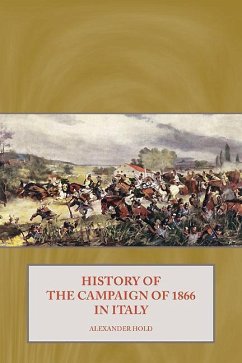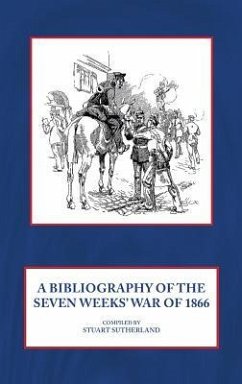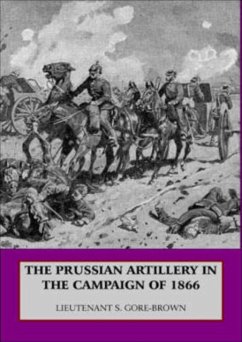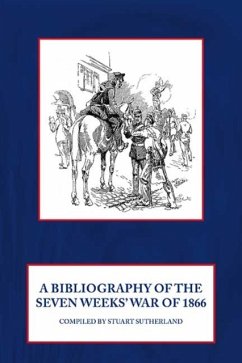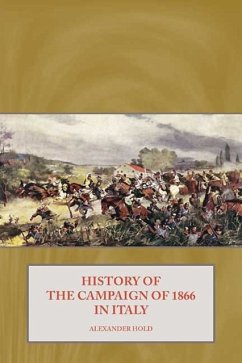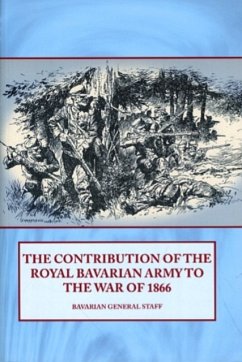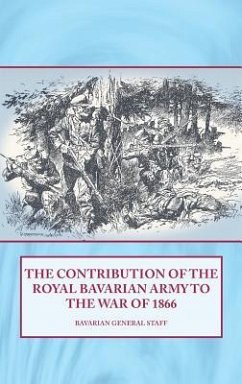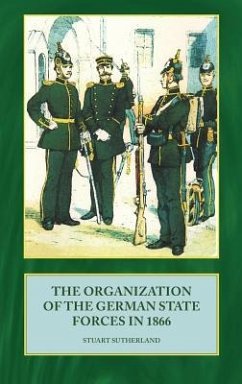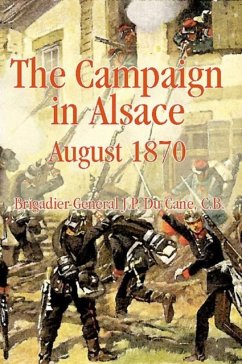Nicht lieferbar
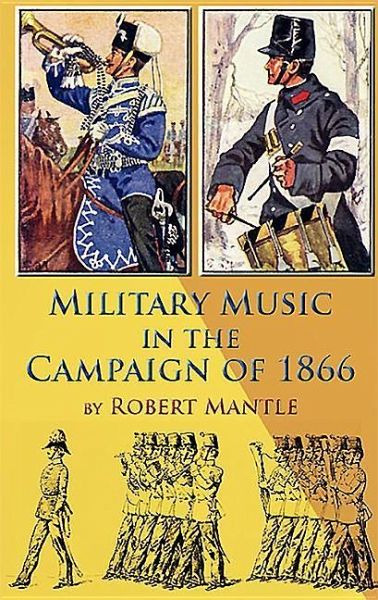
Military Music in the Campaign of 1866
Versandkostenfrei!
Nicht lieferbar
The Seven Weeks War of 1866 occurred during a golden age of military music in both Austria and Prussia. This study will examine the background to this music, the role of military bands in contemporary culture, their repertoire and their exploits on the battlefield. PART ONE Prussia: the Wieprecht era - the development of military music, the three types of music (infantry, Jaeger and cavalry), and the composition of the respective bands, the Army March Collection, Berlin's golden era: concerts, parades and competitions. PART TWO Austria: the Leonhardt era, bandsmen as "musical missionaries", re...
The Seven Weeks War of 1866 occurred during a golden age of military music in both Austria and Prussia. This study will examine the background to this music, the role of military bands in contemporary culture, their repertoire and their exploits on the battlefield. PART ONE Prussia: the Wieprecht era - the development of military music, the three types of music (infantry, Jaeger and cavalry), and the composition of the respective bands, the Army March Collection, Berlin's golden era: concerts, parades and competitions. PART TWO Austria: the Leonhardt era, bandsmen as "musical missionaries", reforms after 1848, types of music, drum majors and drum dogs, regimental marches, Prussia's unrequited love affair with Austrian music. PART THREE Musicians at war, what came before: the campaign of 1864 in Denmark, Nachod and Skalitz, Koniggratz: the 57th are played into action, Koniggratz: Gottfried Piefke restores his king's morale, the Koniggratzer March: myth and reality, Piefke goes on parade. PART FOUR The repertoire: a brief guide to identifying Prussian and Austrian marches known to have been played at the time, some familiar, some less so. PART FIVE Biographical sketches - Brief biographies of important personalities (Wilhelm Wieprecht, Andreas Leonhardt, Gottfried Piefke, Friedrich Wilhelm Voigt, Heinrich Saro, Georg Faust, Albert Lorenz, Johann Christian Meinberg, Johann Carl Neumann, Gustav Bock, etc). BIBLIOGRAPHY. Fascinating insight into military music in mid-19th-century Europe, and the part it played in the Campaign of 1866. Researched from original German sources, bringing to light many facts hitherto unknown or neglected for many years. Includes a list of recommended CDs and records. This special hardback edition will be produced in a limited numbered edition, signed by the author, of 250 copies!




